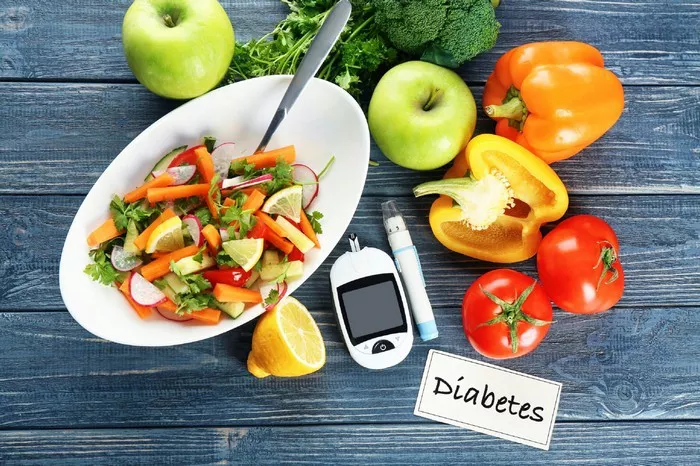Maintaining stable blood sugar levels is crucial for overall health, particularly for individuals managing conditions like diabetes. While there are no instant fixes for lowering blood sugar levels, certain dietary choices and lifestyle changes can significantly impact blood glucose regulation over time. In this article, we will explore immediate measures, long-term dietary strategies, nutritional information, food lists, meal planning tips, lifestyle recommendations, and a medical advice disclaimer to empower individuals in managing their blood sugar levels effectively.
Immediate Measures
It’s essential to clarify that while no foods can instantly lower blood sugar, certain actions can help manage it. For instance, staying hydrated by drinking water regularly can help prevent dehydration, which can elevate blood sugar levels. Additionally, engaging in physical activity, even a short walk after meals, can aid in glucose metabolism and improve insulin sensitivity, thereby contributing to better blood sugar control.
Long-Term Dietary Strategies
In the realm of long-term blood sugar management, focusing on foods with a low glycemic index (GI) is paramount. The glycemic index measures how quickly a carbohydrate-containing food raises blood glucose levels. Foods with a low GI release glucose into the bloodstream gradually, preventing spikes and promoting stable blood sugar levels.
Here’s a list of foods with a low GI that can help manage blood sugar levels over time:
Whole grains: Opt for whole grains like quinoa, barley, and oats, which are rich in fiber and nutrients, promoting slower digestion and steady glucose release.
Legumes: Beans, lentils, and chickpeas are excellent sources of protein and fiber, contributing to improved blood sugar control.
Non-starchy vegetables: Incorporate broccoli, spinach, kale, and other non-starchy vegetables into meals for added fiber, vitamins, and minerals without significantly impacting blood sugar levels.
Lean proteins: Choose lean sources of protein such as poultry, fish, tofu, and tempeh, which provide essential nutrients without causing spikes in blood sugar.
Healthy fats: Include sources of healthy fats like avocados, nuts, seeds, and olive oil, which can help slow down the absorption of glucose and promote satiety.
Nutritional Information
Certain nutrients play key roles in blood sugar regulation. Fiber, for example, found abundantly in whole grains, fruits, vegetables, and legumes, slows down the absorption of carbohydrates, preventing rapid spikes in blood glucose levels. Moreover, fiber promotes digestive health and helps individuals feel full longer, aiding in weight management—a crucial aspect of diabetes care.
Furthermore, incorporating foods rich in magnesium, chromium, and vitamin D can also support blood sugar control. Magnesium helps regulate insulin sensitivity, while chromium assists in carbohydrate metabolism. Adequate vitamin D levels have been associated with improved insulin sensitivity and lower risk of type 2 diabetes.
Food Lists
Building a diet around foods known to help regulate blood sugar can be beneficial for individuals aiming to manage their condition effectively. Here’s a comprehensive list of such foods:
- Broccoli
- Seafood
- Pumpkin
- Nuts
- Quinoa
- Beans
- Leafy greens
- Berries
- Chia seeds
- Greek yogurt
- Sweet potatoes
- Eggs
- Olive oil
- Tofu
- Salmon
Incorporating these foods into daily meals can contribute to better blood sugar control and overall health.
Meal Planning Tips
Effective meal planning is key to maintaining stable blood sugar levels throughout the day. Here are some tips for incorporating blood sugar-friendly foods into a balanced diet:
Focus on portion control: Pay attention to serving sizes to prevent overeating, which can lead to blood sugar spikes.
Include protein in each meal: Protein helps stabilize blood sugar levels and promotes feelings of fullness. Incorporate lean proteins such as chicken, fish, tofu, or beans into meals.
Prioritize fiber-rich foods: Aim to include plenty of fruits, vegetables, whole grains, and legumes in your meals to increase fiber intake and promote steady glucose release.
Limit refined carbohydrates: Minimize consumption of sugary beverages, sweets, white bread, and other refined carbohydrates that can cause rapid spikes in blood sugar.
Stay hydrated: Drink plenty of water throughout the day to stay hydrated and support optimal blood sugar regulation.
Lifestyle Recommendations
In addition to dietary adjustments, certain lifestyle changes can complement efforts to manage blood sugar levels effectively:
Regular exercise: Engage in physical activity regularly, aiming for at least 150 minutes of moderate-intensity exercise per week. Exercise helps improve insulin sensitivity and promotes glucose uptake by muscles, leading to better blood sugar control.
Stress management: Practice stress-reduction techniques such as mindfulness meditation, deep breathing exercises, or yoga to lower stress hormones like cortisol, which can elevate blood sugar levels.
Adequate sleep: Prioritize quality sleep to support overall health and hormone regulation, including insulin production and glucose metabolism.
Medical Advice Disclaimer
It’s essential to consult with healthcare professionals before making significant changes to your diet or diabetes management plan. Healthcare providers can offer personalized guidance based on individual health needs, medical history, and medication regimens. Additionally, regular monitoring of blood sugar levels and ongoing communication with healthcare providers are essential for optimizing diabetes care and overall well-being.
In conclusion, managing blood sugar levels with diet requires a holistic approach that encompasses both immediate measures and long-term strategies. By incorporating blood sugar-friendly foods, practicing portion control, staying active, managing stress, and seeking medical guidance, individuals can take proactive steps toward achieving optimal blood sugar control and improving their quality of life.
























